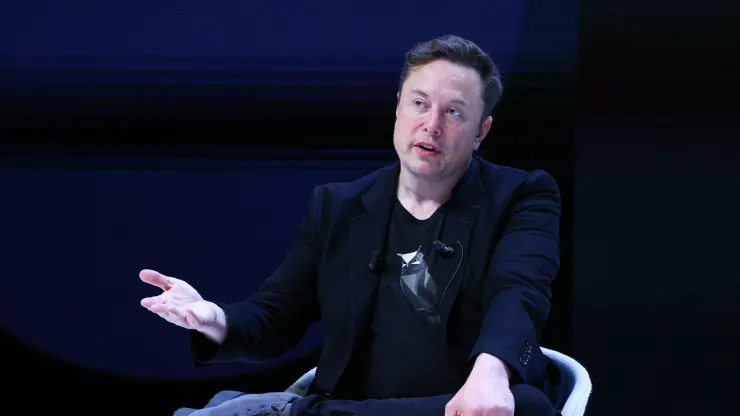- Speaking at the Cannes Lions Festival on Wednesday, Elon Musk said his remark telling advertisers to “go f— yourself” was meant as a general point on free speech rather than a comment to the wider industry.
- “It wasn’t to advertisers as a whole,” Musk said. “It was with respect to freedom of speech.”
- Last year, some of the world’s largest advertisers including Apple, IBM, Disney, and Sony pulled advertising on X in the wake of controversial comments made by the platform’s billionaire owner.
Elon Musk attempted to clarify his previous remarks about advertisers leaving his X social media platform during the Cannes Lions advertising festival. When WPP CEO Mark Read asked about his “go f— yourself” comment directed at advertisers threatening to pull ads, Musk explained it was about free speech, not the entire advertising industry.
“It wasn’t to advertisers as a whole,” Musk said. “It was with respect to freedom of speech. I think it is important to have a global free speech platform, where people from a wider range of opinions can voice their views.”
Musk emphasized that some advertisers demanded censorship. “At the end of the day … if we have to make a choice between censorship and losing money, [or] censorship and money, or free speech and losing money, we’re going to choose the second.”
He added, “We’re going to support free speech rather than agree to be censored for money which I think is the right moral decision.”
Musk’s visit to Cannes was aimed at reassuring ad groups and global brands about X’s future, joined by Linda Yaccarino, X’s CEO.
Previously, major advertisers like Apple, IBM, Disney, and Sony had pulled ads from X due to controversial comments from Musk and ad placements near toxic content. Musk’s November trip to Israel, following accusations of amplifying anti-Jewish hatred, was questioned if it was an “apology tour” to advertisers. Musk responded at the 2023 DealBook Summit, “If somebody is going to try and blackmail me with advertising? Blackmail me with money? Go f— yourself.”
On Wednesday, Musk softened his stance, acknowledging advertisers’ rights to control where their ads appear. “Of course, advertisers have a right to appear next to content they find compatible with their brands,” he said. “What is not cool is insisting that there can be no content that they disagree with on the platforms.”
He concluded, “In order for X to be the public square for the world, it really better be a free speech platform — that doesn’t mean people can say illegal things; it’s free speech within the bounds of the law.”










